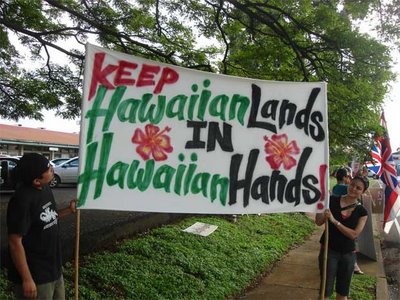
Tourism is often sold as a win-win for travelers and host countries, but beneath the glossy brochures and beachfront cocktails lies a stark reality of displacement, environmental destruction, and cultural exploitation. This piece uncovers the neocolonial cost of your tropical vacation and asks: Who really profits when paradise is for sale?
Bottomless drinks, clear turquoise water, white sandy beaches, and a picturesque sunset–the perfect vacation, right? Where the wealthy sip cocktails and the locals are left to deal with the mess behind. That’s how it’s marketed in the U.S. We’re sold the fantasy of an exotic escape where everything is catered to our desires. But that fantasy has a hidden cost.
Behind the luxury of tropical destinations lies a very different reality. The places where wealthy tourists go to relax and unwind are often struggling with poverty, displacement, and resource scarcity. And whenever someone tries to challenge these consequences, we’re met with the same arguments: “Tourism is good for the economy,” or “At least we’re bringing jobs.” But is this argument valid? Is tourism actually good for economies? Or is that argument justifying the industry?
Take Jamaica, for example. Known for its beaches and resorts, it’s a textbook case of how tourism creates profits at the cost of displacing people. According to a local advocacy group, less than 1% of the country’s beaches are accessible to locals. That’s not a typo. Most, if not all, of the locals on the island cannot enjoy the beauty of their own land. And the economy? Weak and deficient. Up to 80% of tourism revenue in the Caribbean leaks out of the region, funneled into the pockets of foreign hotel chains, airlines, and booking platforms. While tourists sip rum punches, Jamaicans serve them on land they can’t access, for wages they can’t live on.
Tourism is a multi-trillion-dollar industry built on the exploitation of Indigenous lands, people, and cultures. It drives environmental degradation, displaces communities, and turns meaningful ancestral traditions into Instagram aesthetics. Hawai‘i is a stark example of this neocolonial exploitation.
Resource Depletion + Environmental Degradation in Hawai‘i

Hawai‘i, currently under US occupation, was once a sovereign kingdom overthrown in 1893 by American and European businessmen. Since then, it has been relentlessly commodified. It is a paradise for tourists, but increasingly unlivable for Native Hawaiians.
Tourism here devours resources. The sheer volume of visitors to Hawai‘i each year puts a massive strain on water availability and accessibility. During the pandemic, water usage dropped by nearly 1 million gallons a day when tourism came to a halt. Even during droughts, locals are subject to water restrictions while resorts operate without disruption, often tapping into private water sources that aren’t accessible to the public. Massive hotels guzzle electricity and occupy land that once supported subsistence farming and Native housing. Coral reefs, sacred to Hawaiians and vital to marine ecosystems, are being bleached by pollution and boat traffic. The more tourists arrive, the more locals are pushed out, priced out of homes, restricted from their land, and left to watch their homeland become the backdrop to someone else’s vacation.
Cultural Disrespect + Spiritual Exploitation in Bali
Bali is renowned worldwide as a mystical spiritual oasis. Tourists flock for yoga retreats, “energy cleanses,” and a taste of local spirituality, bringing with them ignorance and entitlement.
Visitors routinely ignore local customs: taking nude photos at sacred sites (how often this happens is shocking!), wearing revealing clothing to temples, and disregarding paramount cultural practices, like removing footwear when entering temples or wearing appropriate religious attire. And it doesn’t stop there. Western “expats” have monetized local spiritual practices, opening retreat centers and yoga studios that sell a repackaged, commercialized version of both Balinese practices and broader New Age spirituality. The result? Local practitioners are sidelined, and spiritual traditions become colonized and turned into an industry that excludes the very people these practices belong to.
All-Inclusive Resorts + Tourist Entitlement in Mexico
Mexico is one of the most visited countries in the world, especially by Americans. Its coastal towns are lined with all-inclusive resorts that promise endless food, drinks, and entertainment without ever having to leave the hotel grounds. But this convenience comes at a high cost for locals.
These resorts are often foreign-owned and operate on a model of self-containment, meaning guests rarely spend money in local communities. Food and produce are imported to cater to Western tastes. Local workers are hired for low-wage, often seasonal service roles, with little opportunity for advancement. While Mexico’s tourism industry generates quick cash and jobs, a significant amount of the money gets pocketed by corporate bosses and shareholders. Tourism can actually hurt other industries like farming and fishing, since it drives up land prices and wages.
Let’s call it what it is, neocolonialism.. Americans treat Mexico as their playground and luxurious escape, while Mexico’s people are surveilled, detained, and demonized when they cross the border in search of safety or opportunity. One group gets margaritas and ocean views; the other gets walls and cages.
Is tourism really good for local economies? On the surface, it might appear that way. But go deeper, and the story changes. Many of these countries were made dependent on tourism through political destabilization and economic pressures, pushed into service-based industries because their resources, lands, and labor were already being exploited. The concept of “development” we’re sold is often just colonialism: Western investors owning the land, controlling the profit, and making the rules, while locals are marginalized, exploited for their resources, and pushed into sub-servient roles in their own homes.
This doesn’t mean travel is inherently unethical. Travel can be transformative, a way to learn, connect, and grow. But only if it’s done with care, consent, and respect. Ethical tourism requires dismantling the systems that currently define the industry. That means restoring local ownership of the land, culture, and sovereignty.
Until then, let’s stop pretending tourism is harmless, or even beneficial. Across the global south, it still operates as modern colonialism–depleting resources, commodifying culture, subjugating indigenous people, and pushing them off their land. I urge you to think twice before booking that vacation, and instead, travel more authentically and consciously. Use your voice to raise awareness and advocate for communities harmed by the industry. Spend your dollars intentionally to support local economies, not foreign corporations. A luxury getaway in a tropical resort may seem innocent, but the damage it causes is irreversible.
SOURCES
Community.

